You Me We Us and Ethnic Diversity in Thailand
February 24, 2023
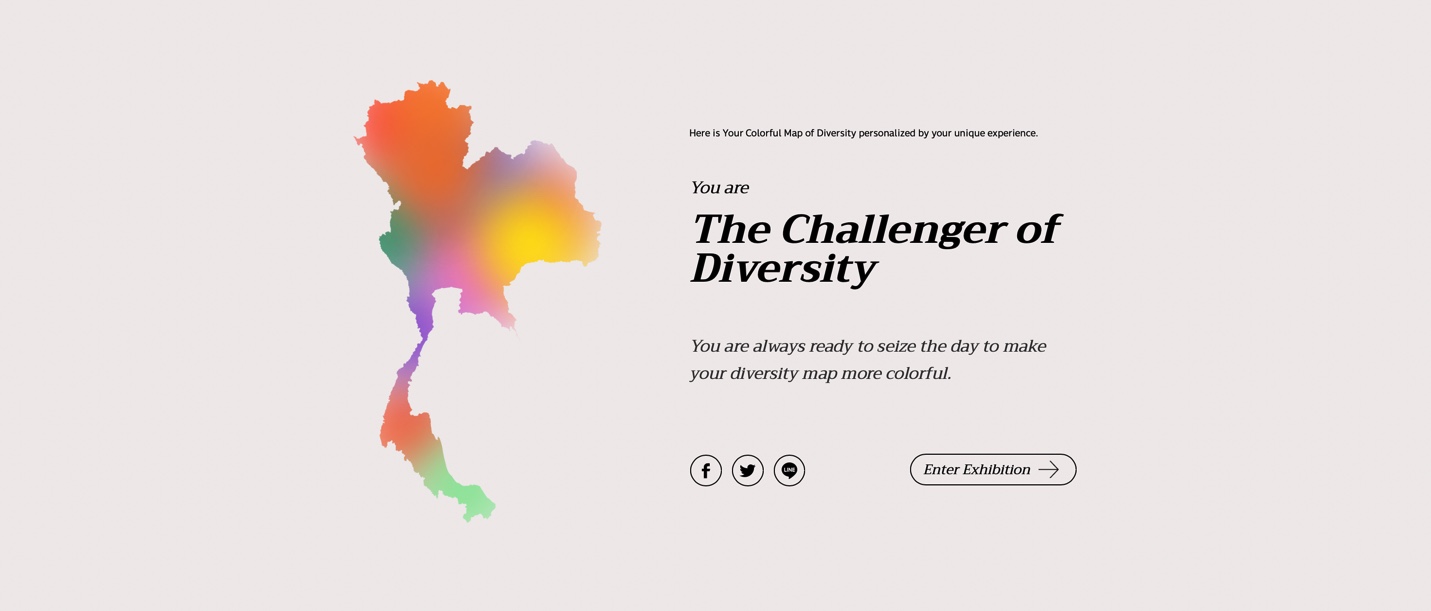
When we look at the map, we usually see Thailand as a golden axe painted in one solid colour and tend to assume that the country only has “Thai Ethnic People”. However, if we were to look back upon ourselves and those around us, we might find many other diverse “ethnicities,” including “Thai” as one of them. Today we’re introducing you to the ‘You Me We Us’ online exhibition that invites us to discover the many ethnicities in Thailand and dig deeper on where the notion of “Thainess” comes from.
The exhibition welcomes us with a cloud of colours, with reflective questions, such as “You are….”, “What culture do you identify with?” or questions that probe us to think of ethnic diversity in Thailand like, “When it comes to ethnicity in Thailand, which group of people comes to your mind?”
When talking about ethnicities, do you realize that ethnicity, race, and nationality have different meanings? The ‘You Me We Us’ exhibition delves into their distinctions helping us uncover our ethnicity that lies beneath our nationality.
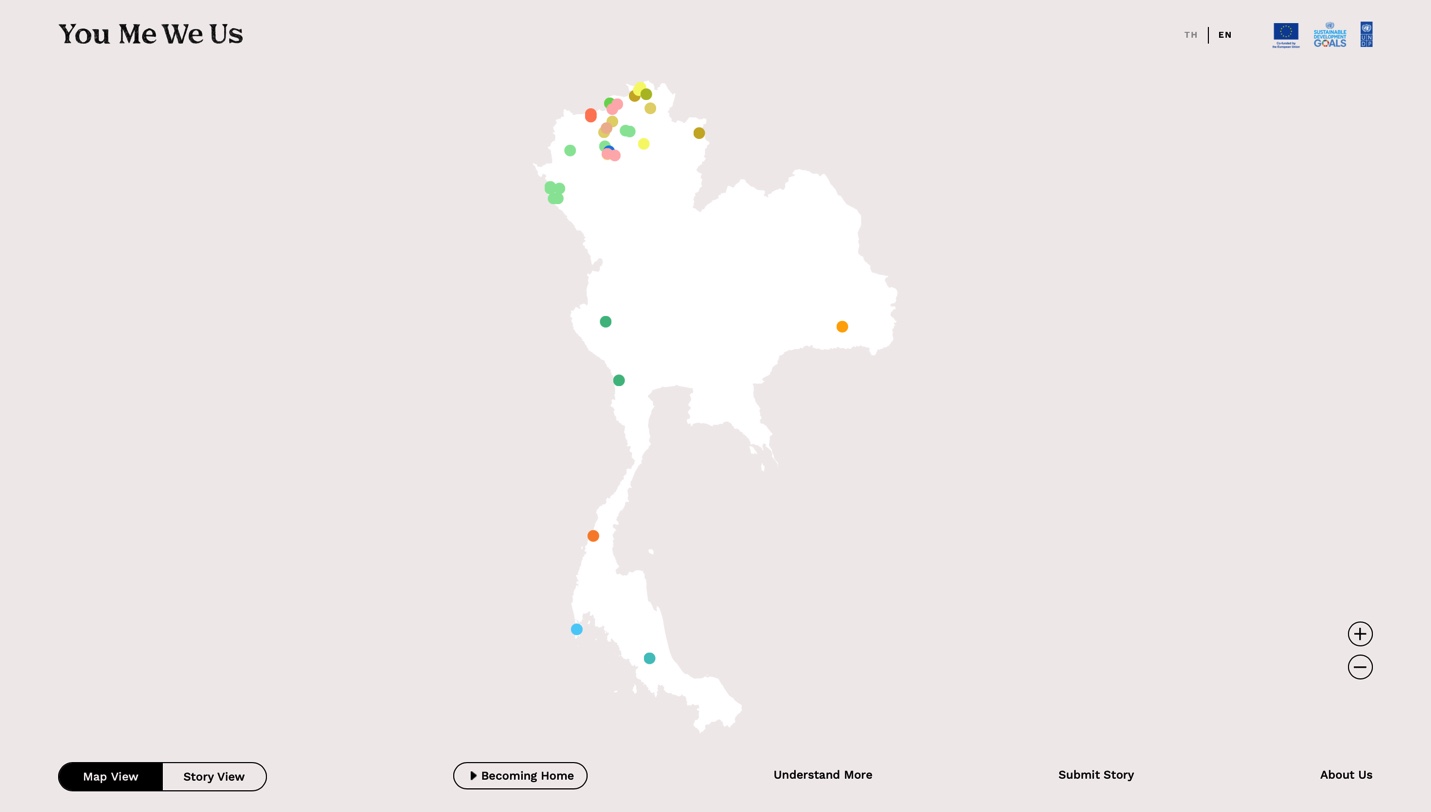
Untold Stories, Unknown Rights, and Unseen People
The highlight of this exhibition is the presentation of the diverse stories of ethnic groups living in different areas of Thailand. The stories provide us glimpses into the lives and challenges of ethnic people.
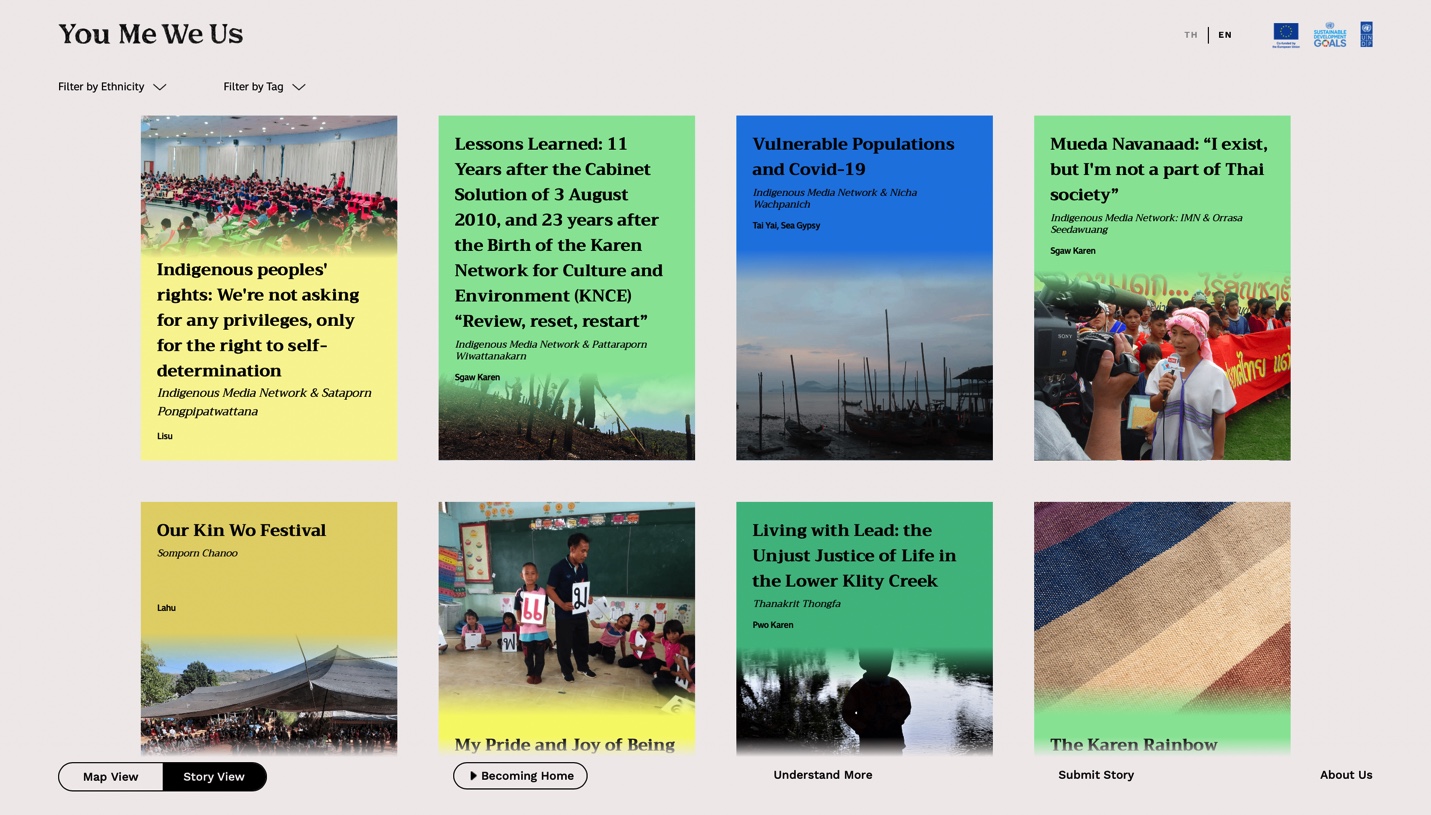
I wish

"If I could wish for one thing, I wish that everyone in the world is equal" is an excerpt from “I Wish,” the story from Pornthip Rungrueang and Saengsa, our Tai Yai friends, a short video full of dreams, and the pain of not being able to pursue them, having been hindered by the concept of “citizenship”. They only have the 10-year resident visa, which falls short of full citizenship and limits their access to many opportunities, such as scholarships, the chance to become a national athlete, free health care, the right to travel freely within the country, and so on, all of which Thai citizens receive without having to ask.
This is one example of the stories which raise basic human rights issues and social inequality which stateless youth are deprived from, simply because they do not have “citizenship”.
Mae Por Ki, The Water of Life, The Place of Spirituality
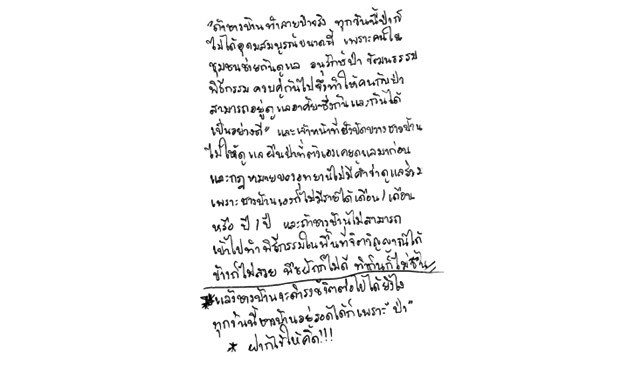
"If the villagers had really destroyed the forest, the forest would not be so lush now. It is like this because community members help conserve the forest through their way of life and traditions, which allow humans and forest to co-exist peacefully and sustainably,” a note written from the heart of Di-Sae, our Karen friend, from the story ‘Mae Por Ki, the Water of Life, the Space of Spirituality’. The article tells the unheard story of the Karen community in Mae Por Ki, a village situated far from Tak city center. The villagers are the protectors of ancestral forests spanning 8,400 rai, which are deeply intertwined with their way of life and spiritual practices. However, in 2017, their ancestral land was suddenly slated to be declared a National Park, and the community members were accused of destroying the forest.
The story highlights the strong connection between humans and nature, as well as the deprivation of the ethnics’ right to live with nature.
Becoming Home
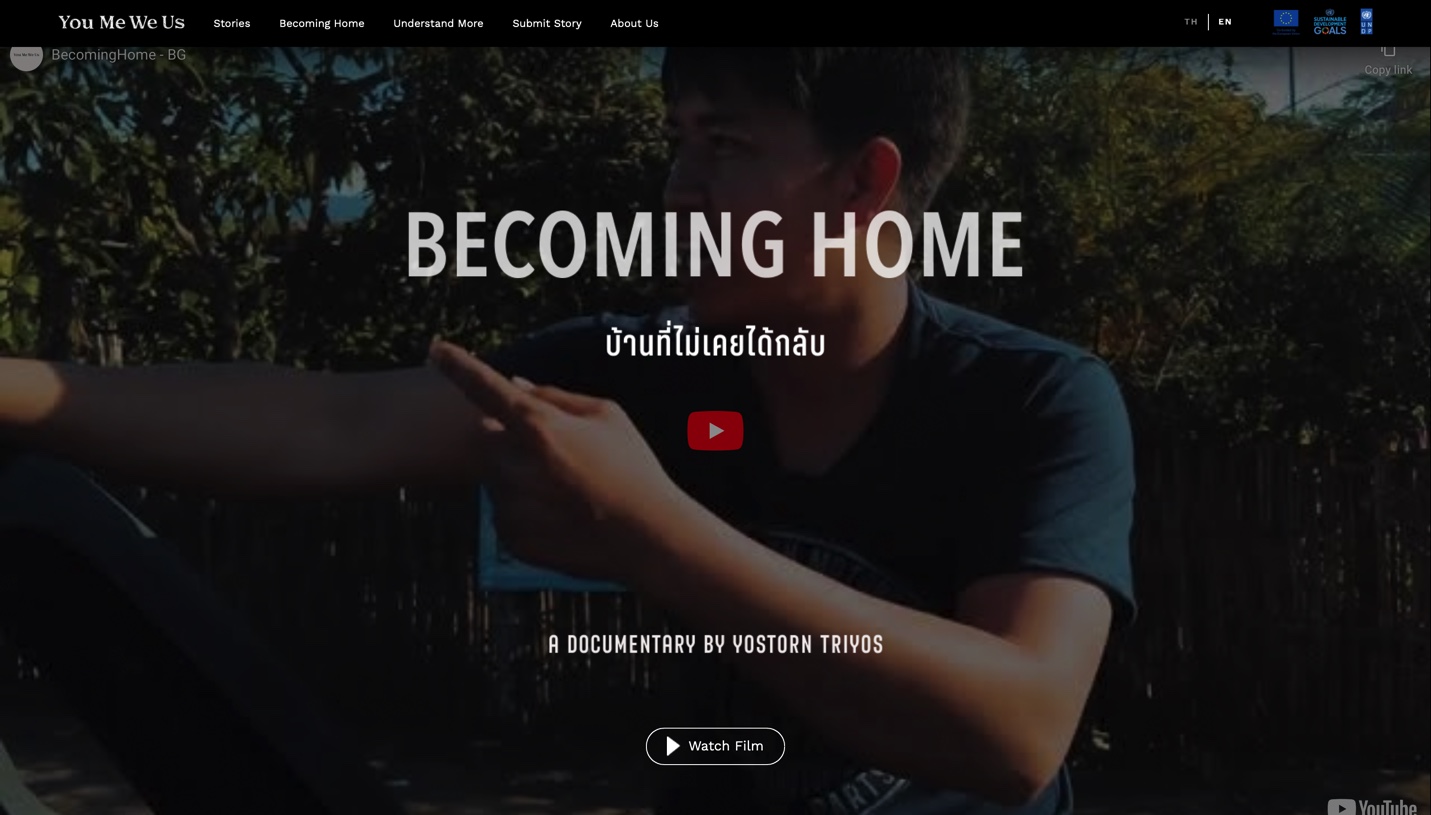
This exhibition showcases a variety of stories told in many forms, including a standout short documentary named “Becoming Home” by Yostorn Triyos. In this 39-minute film, Yostorn Triyos and his friends take us on a journey through the experiences, struggles, and calls for the basic rights of stateless people. It tells the difficulties they face in traveling, living, and achieving their dreams and how the lack of citizenship acts as a barrier to their aspirations. Some even want to give up, since no matter how hard they try to educate themselves or work, the same challenge will still stand in their way.
For many people with Thai citizenship, these stories are probably unheard of since the privilege of citizenship comes naturally without having to seek for. However, for those without it, this is their truth and their lives. It is a constant thorn in their side, a wall, something they want with all their hearts, just to have basic rights that many take for granted.
Come join us in finding answers about your citizenship and traveling through the journey of other ethnic groups at: https://you-me-we-us.sac.or.th
‘You Me We Us’ exhibition is hosted by the United Nations Development Programme, in collaboration with Princess Maha Chakri Sirindhorn Anthropology Centre (SAC), Inter Mountain Peoples' Education and Culture in Thailand Association (IMPECT), and Council of Indigenous Peoples in Thailand (CIPT), with the support of the European Union.

 Locations
Locations